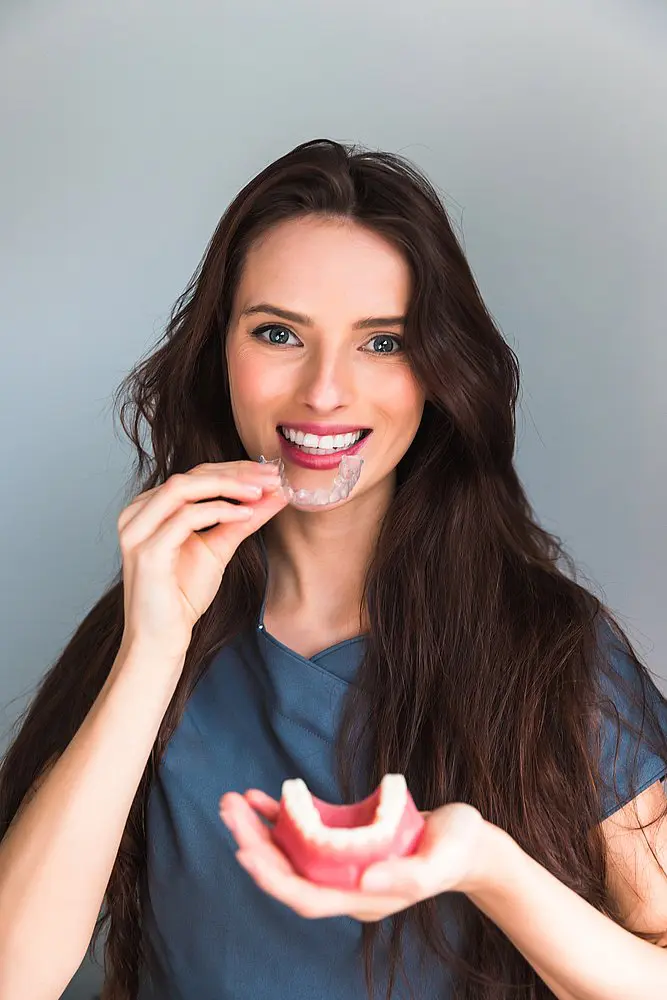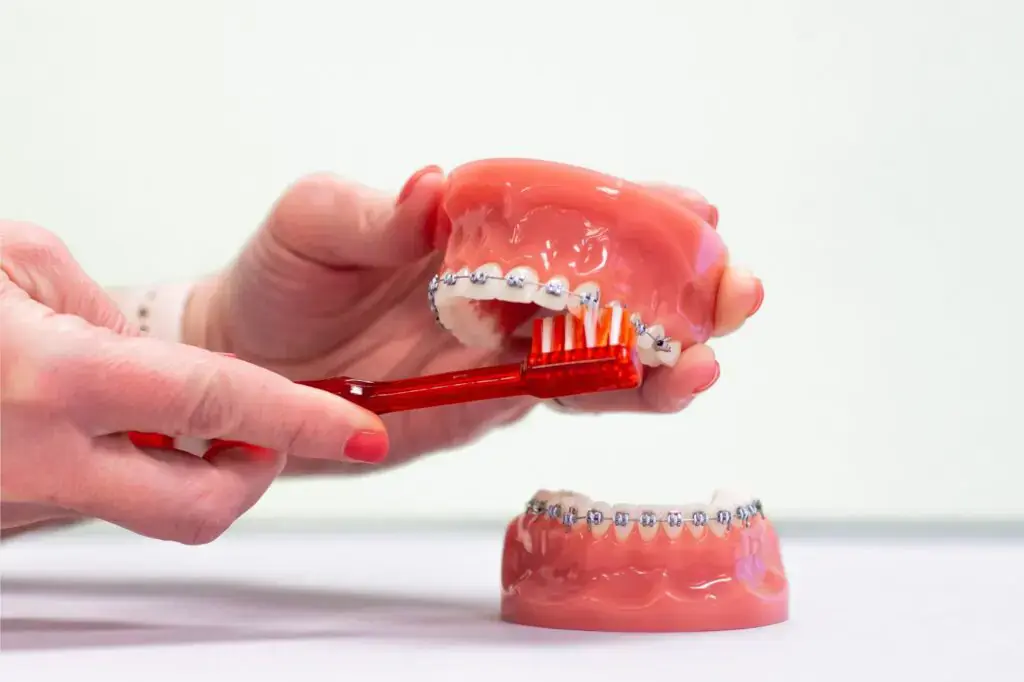If you have braces, there’s a long list of things you can’t – or shouldn’t – eat. Whole apples, popcorn, ice, and taffy and caramel are just a few items on the list of banned foods.
What about chewing gum with braces?
Traditional wisdom says you can’t chew gum and those who believe this is mostly right. You should avoid gum when possible. However, there is an increasingly loud chorus of voices who say it’s alright. Could it be that the dangers of chewing gum with braces was a myth all along?
So, who’s right? Keep reading to learn more about gum and braces.
Why You Shouldn’t Chew Gum with Braces
Gum and braces don’t mix well because it can result in an unplanned trip to the orthodontist.
The stickiness of the gum can get stuck in your brackets and wires and become tricky to remove. More importantly, it can bend your wires.
Even a subtle bend in the wires can cause your teeth to begin to move. If you don’t notice the bent wire or you can’t get in to see the orthodontist quickly, your teeth may move even further out of place. The result: you will add weeks to your total treatment time.
Why Do Some People Say Chewing Gum with Braces is Fine?
You have heard it before. A friend, relative, or a stranger on the internet says they chewed gum and “it was fine.” Usually, they recommend sugar-free gum to avoid the stickiness that bends wires or gets it caught in brackets.
They didn’t make it up. There are allegedly several benefits of chewing gum.
First, research says that sugar-free gum can prevent cavities.
The artificial sweeteners may reduce the bacteria that result in cavities and eventually, tooth decay. It may even wash away dangerous bacteria by encouraging saliva production. What is more, gum can help remove food particles from your teeth if you’re unable to brush or floss after a meal.
Some people also say that you should chew gum if you have pain when you first get your braces or during particularly dramatic adjustments. In theory, chewing gum increases blood flow in your gums, which cuts down on inflammation.
Chewing Gum With Braces: What’s the Verdict?
Despite the contradictory stories about chewing gum with braces successfully, most people should avoid it when and where they can. Once or twice won’t destroy your treatment, but it’s always a risk, and you shouldn’t make it a habit.
Beyond feeding an old habit, there isn’t a good reason to chew gum when you have braces. For every benefit it’s said to offer, there’s a braces-friendly alternative.
A Few Alternatives to Gum Chewing
You can replace all the so-called benefits of chewing gum easily without risking your braces.
If you want to chew gum to help with pain, choose over-the-counter pain relievers (Tylenol, ibuprofen, and other NSAIDs) instead. These medicines last just long enough to mask the pain of your orthodontic adjustments.
Additionally, if you struggle with gum inflammation, then you can use an ice pack to help manage any swelling.
Keeping hydrated will also help you keep inflammation down and wash away harmful bacteria. Drink plenty of ice water, but be sure not to begin chewing on any ice accidentally to avoid damaging your braces.
Do you rely on gum to keep your breath fresh?
You have several options. First, you can drink water with some lemon or other citrus to freshen your breath. It kills two birds with one stone: you stay hydrated and get a little boost for your breath.
Mints are another excellent option, but you do need to make sure you don’t chew on them. You should also be wary of mints that have lots of extra sugar – you may need to brush after some of the sweeter products.
As for the claims that gum can clean your teeth and prevent cavities: to this, both our practice and the American Dental Association say, brushing and flossing does the same thing but without the risks. You should brush and floss at least twice daily using an appropriate toothpaste.
What to Do If Your Gum Gets Stuck in Your Braces
Regardless of the advice given, many people choose to chew gum with braces anyway.
If you’re unlucky, it may end up stuck in your braces. If it does, then you’ll need to clean it quickly.
Use your toothbrush to get as much of the gum off as possible. However, you shouldn’t scrub too hard because you want to avoid damaging your brackets and wires.
Is there gum stuck on your brackets or between your teeth? You should use regular dental floss to ease it out of the cracks and crevises.
If there is still some gum left, brush your teeth gently again. The flossing you did should have loosened it.
Can’t get all the gum out of your braces? See the orthodontist, particularly if your next appointment is still several weeks away. They can give you a good clean without risking the placement of your wires.
Even if you don’t need a trip to the orthodontist now, mention the incident at your next appointment so they can check for any potential movement.
Protecting Your Braces Gets You Straighter Teeth Faster
The list of foods banned during braces doesn’t exist because your orthodontist hates gum, popcorn, and caramel apples. Doing things like chewing gum with braces can move your wires, which impacts the efficacy of your braces. If you bend your wires on a regular basis, you could slow down the movement or worse, send your teeth into positions that you don’t want.
While no one says you can’t ever chew gum, you should avoid it. Even if it does have some benefits, it doesn’t offer anything that brushing after every meal and staying hydrated doesn’t.
Are you thinking about getting braces but aren’t sure what to expect? Send your questions our way or even schedule a consultation at our office.



